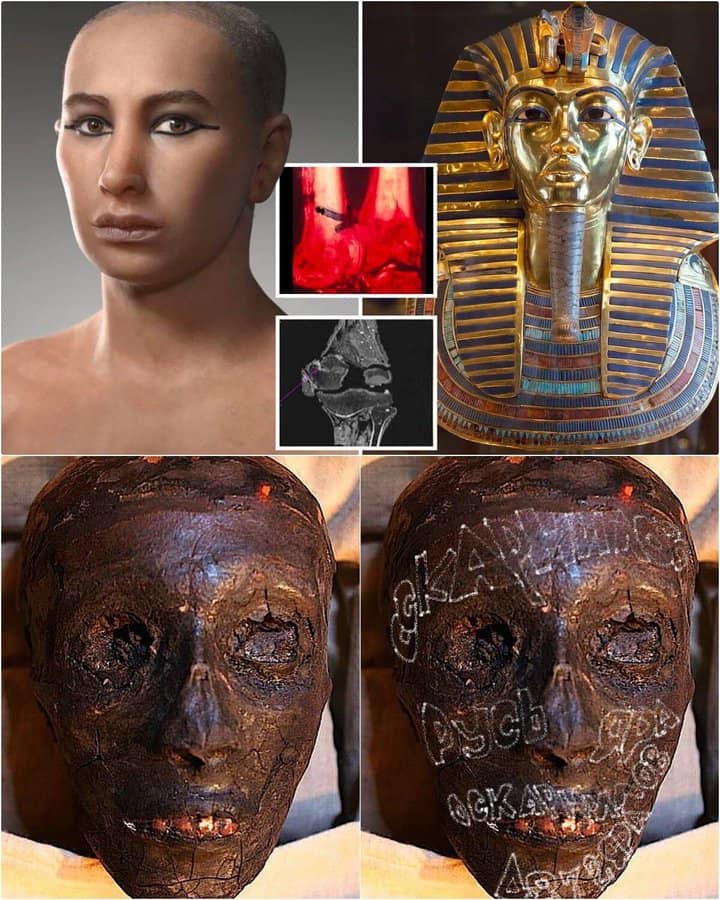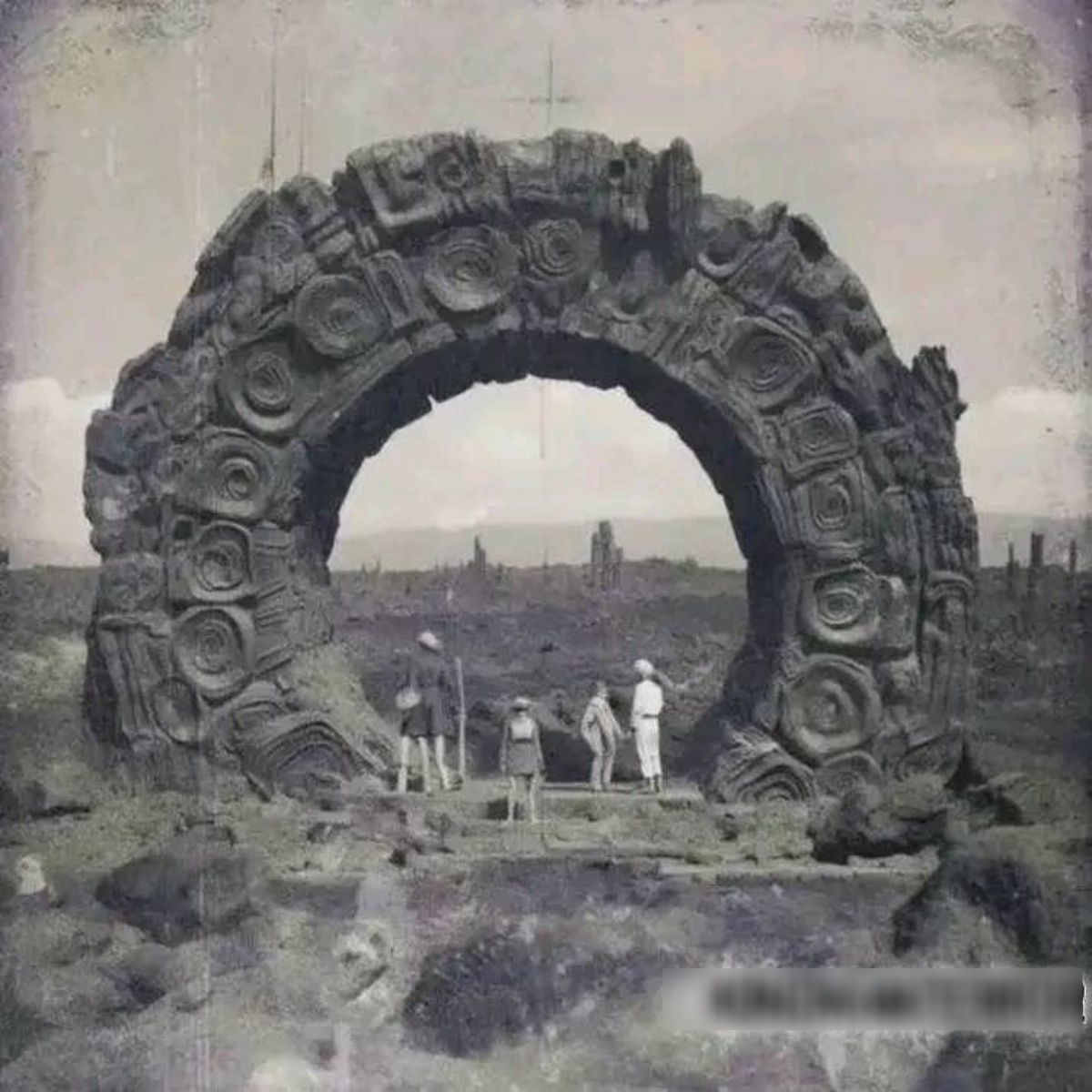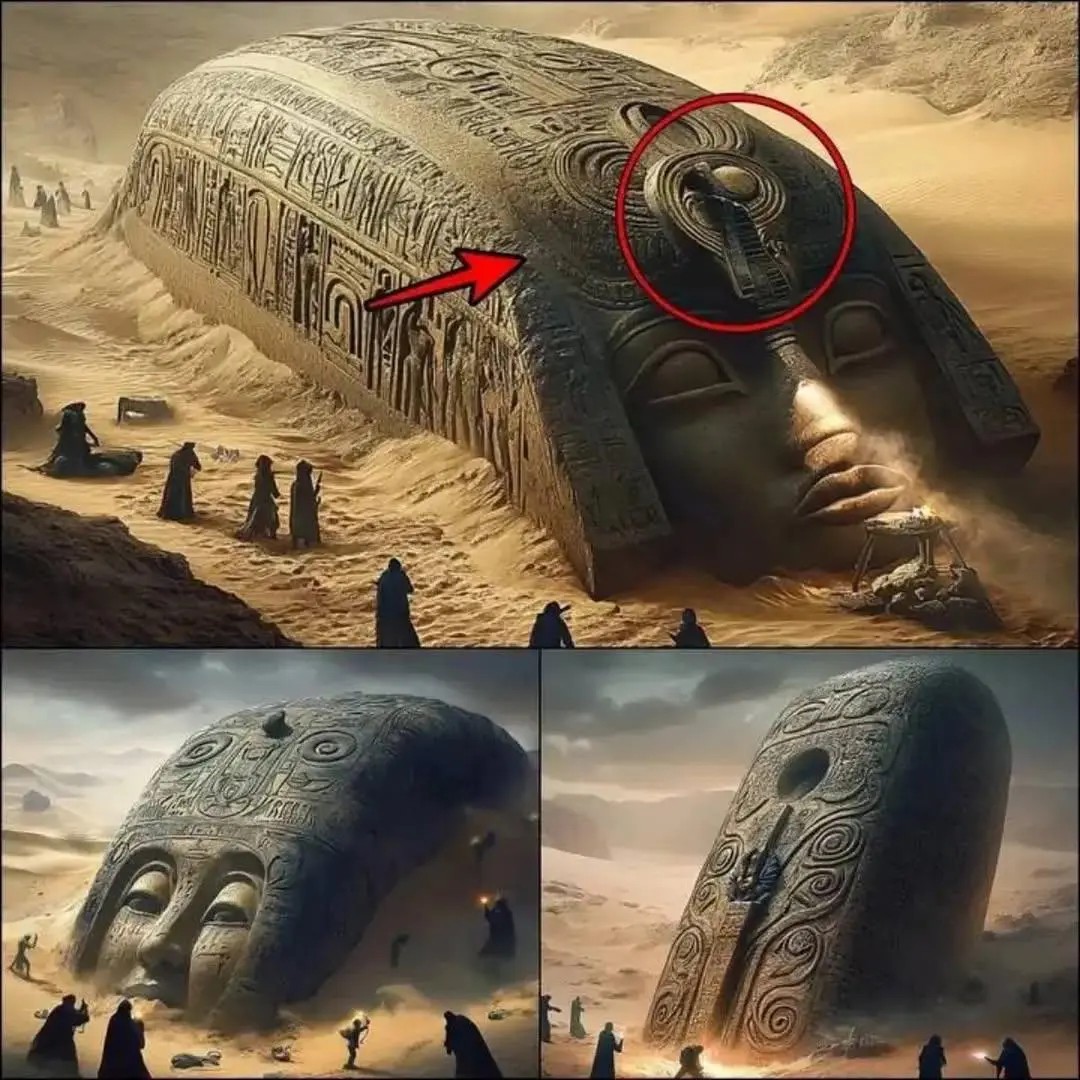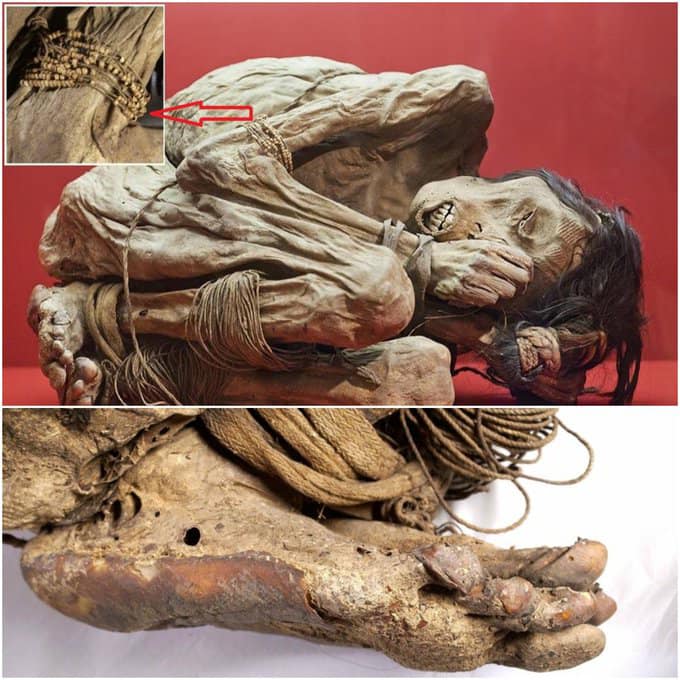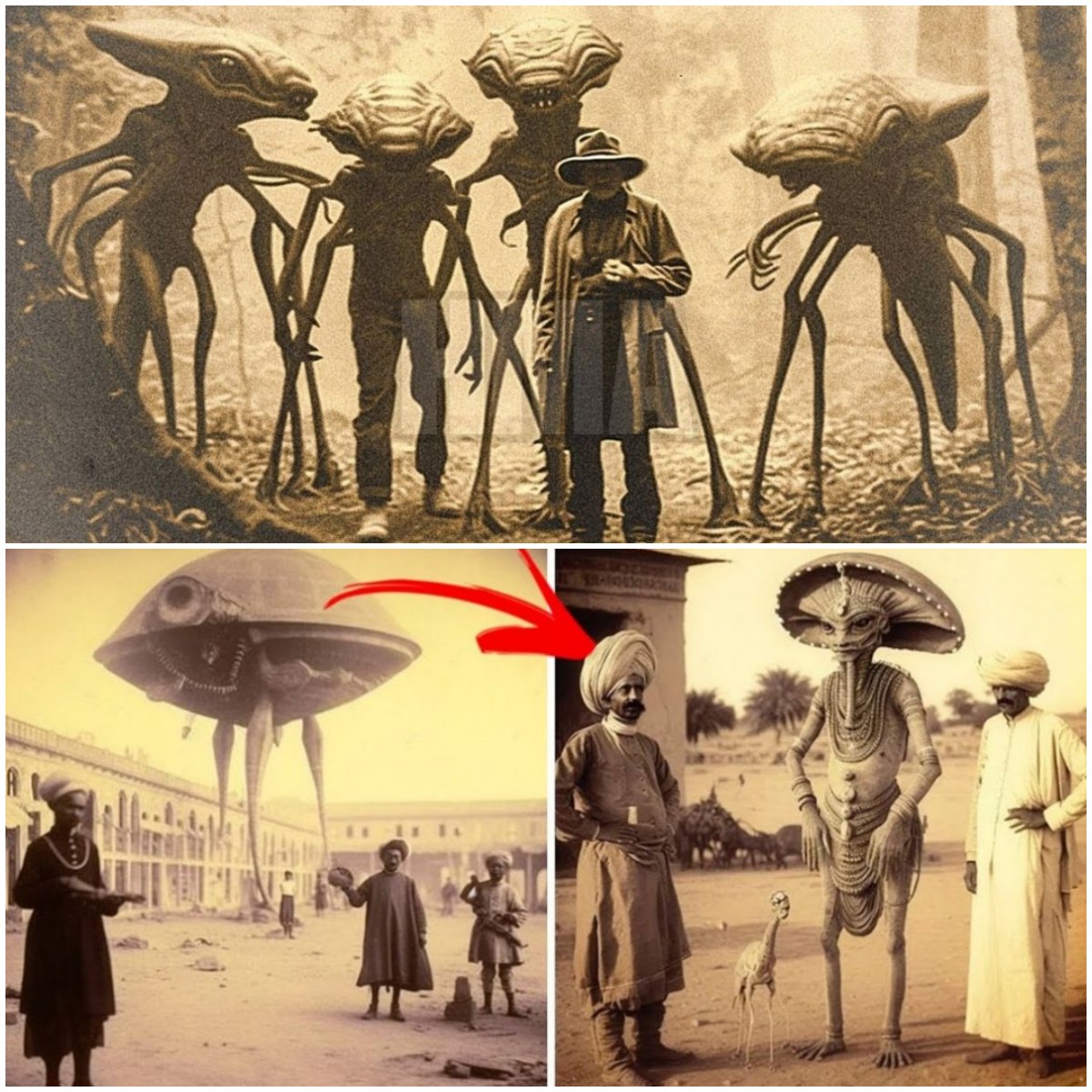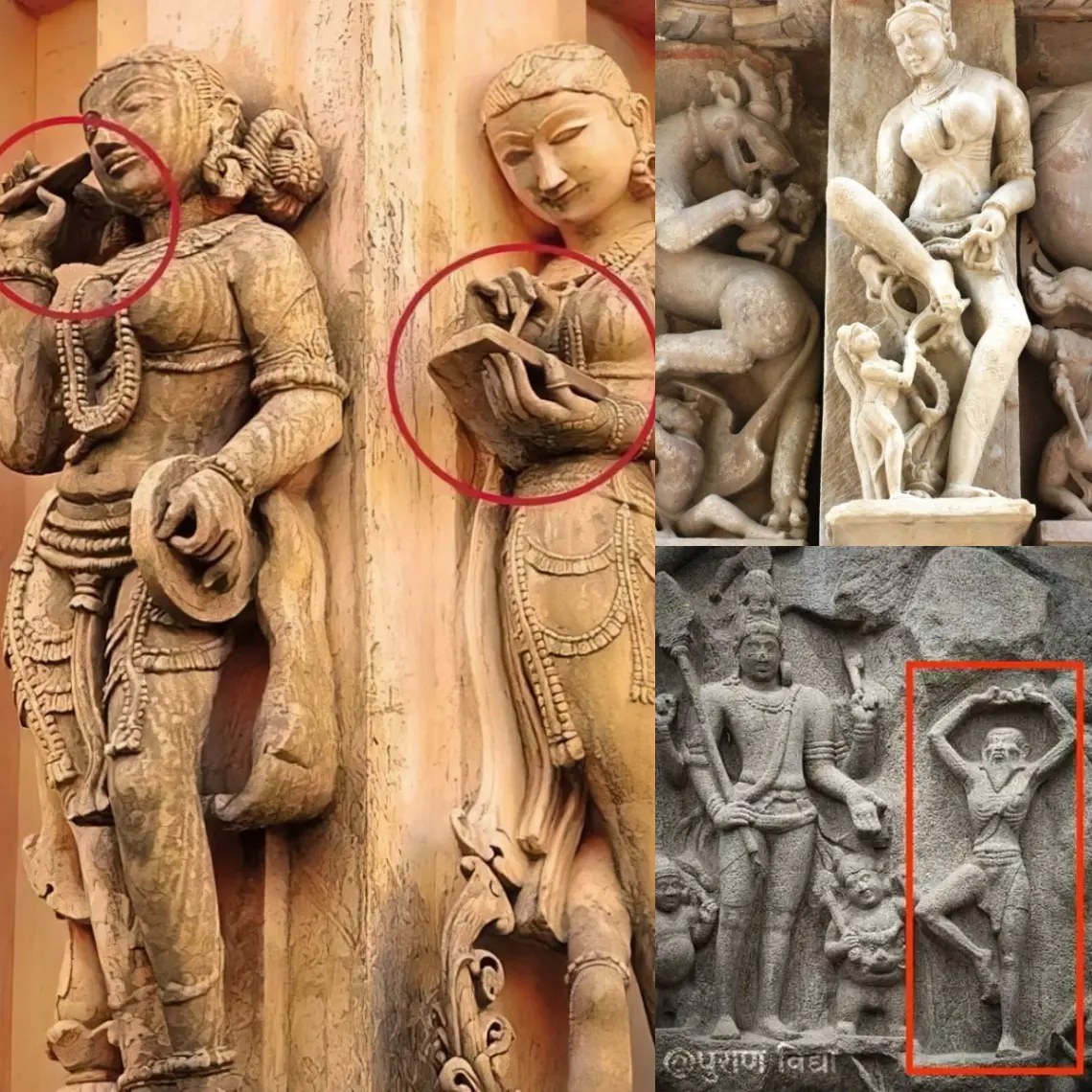The Greek Goddesses, despite their immortality and strength, were often subject to their male counterparts, or else barred from embodying their own power.
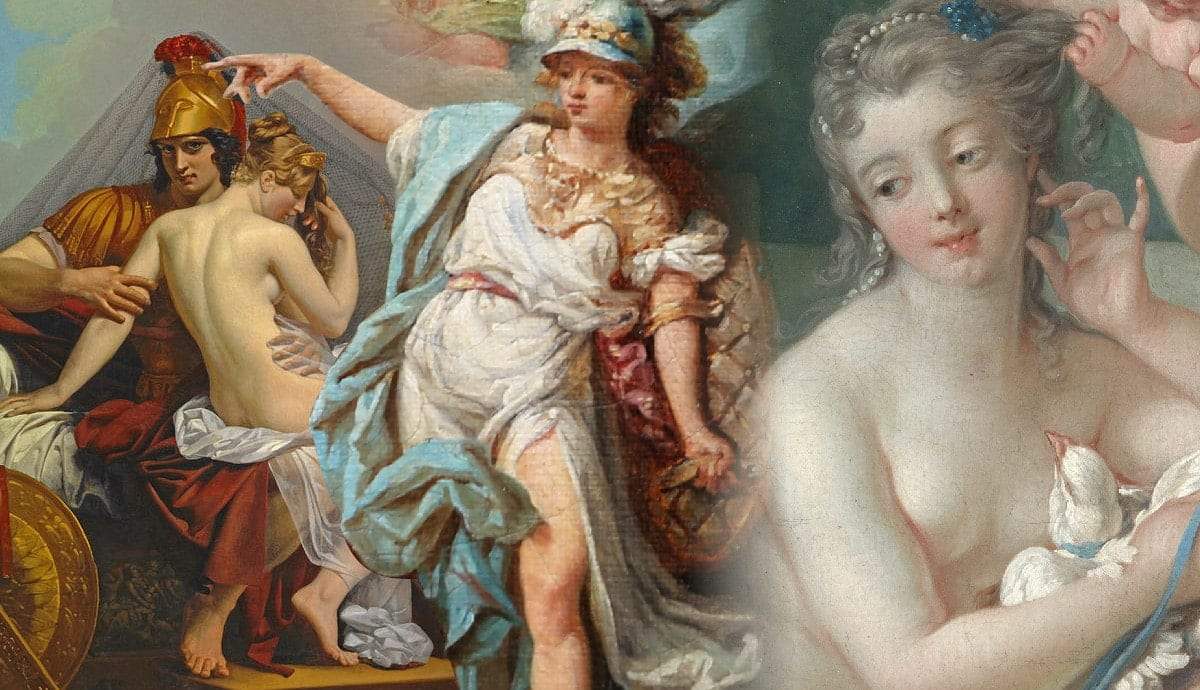
Women in Greece were oppressed, there’s no doubt about it. But what most people don’t realize is, that so too, were the Goddesses. Ironically, Aphrodite, Goddess of Love, was trapped in a loveless marriage; Athena, wisest of beings, always deferred to Zeus; and Hera, Goddess of Marriage, was married to the worst serial adulterer ever known. The Greek Goddesses shared in the oppression of ancient mortal women, and their example is important to the history of feminism.
The Greek Goddesses: Hera Goddess Of Marriage
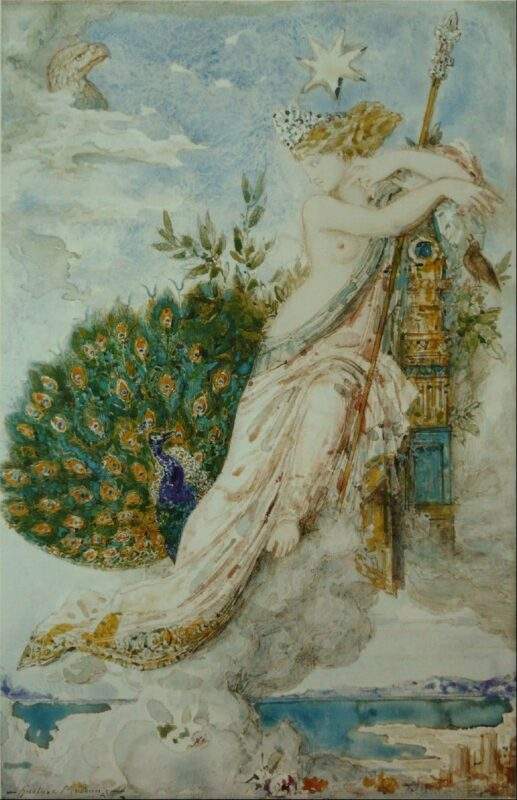
Hera was the Queen of Olympus. Her rank surpassed all other Greek goddesses and most other gods. As the Goddess of Marriage, Hera was one of the most worshipped and respected goddesses in ancient Greece for a very long time. At every wedding and throughout every marriage, people would regularly pray to Hera for her protection and guidance.
And yet, her story began with a forced marriage. In mythology, Hera repeatedly rejected Zeus’ advances and refused to marry him. However, Zeus was relentless and ignored her dismissal.
Eventually, he transformed himself into a cuckoo and conjured a great thunderstorm. He pretended to be an injured and helpless little bird, endangered by the harsh weather. Hera saw the bird in distress and took it into her arms, close to her chest so that she could warm and protect it. Taking advantage of her proximity, Zeus then transformed back into his true godly form and raped her. Hera, ashamed of the violation, agreed to marry Zeus.
Get the latest articles delivered to your inbox
Sign up to our Free Weekly Newsletter
This was a very unstable foundation for their marriage. From that point on, Zeus’ lust and Hera’s jealousy caused untold problems for them both. Hera’s title as Goddess of Marriage was continually flouted by Zeus in his countless affairs with other people.
Whilst Hera was meant to represent the divine ideal of a happy marriage and family, she actually experienced the opposite. Zeus cheated on Hera with many beautiful mortal women and men, and often showed more favor to his illegitimate children than he did to Hera’s children by him, which greatly angered her.
Hera: Part II
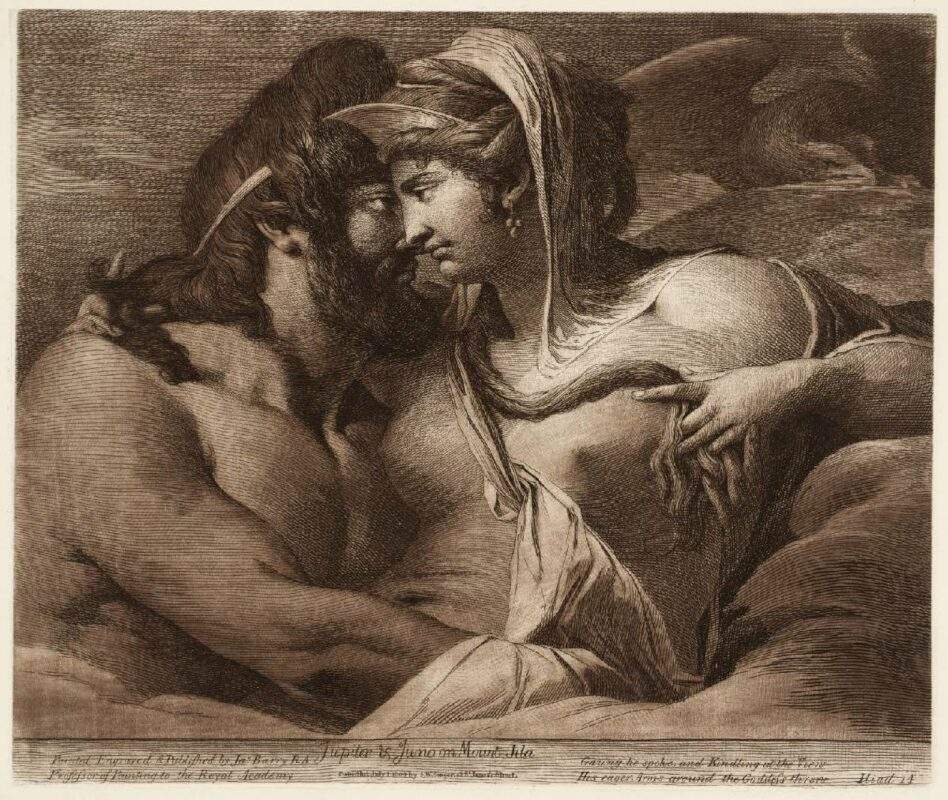
Hera was unable to avenge herself for Zeus’ slights because she was subjugated by the divine hierarchy and fearful of Zeus’ power. On one occasion, Hera attempted to overthrow Zeus with the help of some of the other gods, but the plot failed. In retaliation, Zeus tormented and terrified Hera so much that she never attempted to overthrow him again.
Hera had no power to escape this bond, because, for her and Zeus, marriage was eternal, and it was the custom that only the man could decide to divorce his wife in ancient Greece. Another factor influencing the partnership was that if Zeus and Hera were to divorce, Hera would lose her status and power as Queen of Olympus. Thus, she was dependent on his power for her own. As a result, despite the volatile nature of their relationship, Hera was bound to Zeus forever.
In the context of the history of feminism, Hera’s example illustrates that society was structured in such a way that women were dependent on their husbands and often helpless to change the dynamic. Hera’s rape also demonstrates that women were seen as sexual objects to exploit.
Aphrodite, Goddess Of Love And Passion
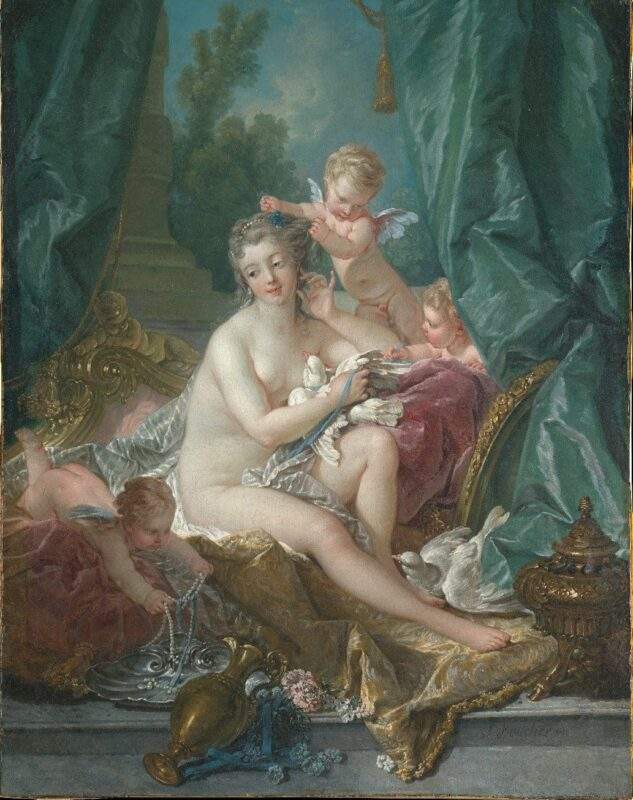
Aphrodite was one of the most beautiful Greek Goddesses in Greek mythology. Due to her unparalleled beauty, many of the gods vied for her hand in marriage. Zeus was unsure how to go about handing her over in marriage to a god without causing tensions.
Finally, an opportunity came along when Hera was trapped in a gold throne by Hephaistos. Zeus offered Aphrodite’s hand in marriage to the god who was able to bring Hephaistos to Olympus and release Hera. Aphrodite was happy with this decision as she was confident in the skill and power of her beau, Ares. However, when Ares attempted to barge into the forge, Hephaistos held him back with a shower of burning molten metal.
Hephaistos held off many suitors until he decided to return to Olympus voluntarily, and demanded Aphrodite’s hand in return for releasing Hera. Zeus agreed, putting a stop to the rivalry and freeing Hera. And so, Aphrodite was given in marriage by her father, Zeus, to Hephaistos but she did not return his affections. Aphrodite had wanted to marry her lover Ares.
Unfortunately for Aphrodite, the custom in Ancient Greece was that women were not allowed to instigate a divorce, this was the man’s choice, so she was bound to her unwanted marriage. As a result of her dissatisfaction with the union, Aphrodite continued to act on her desires and pursue other men.
Aphrodite: Part II
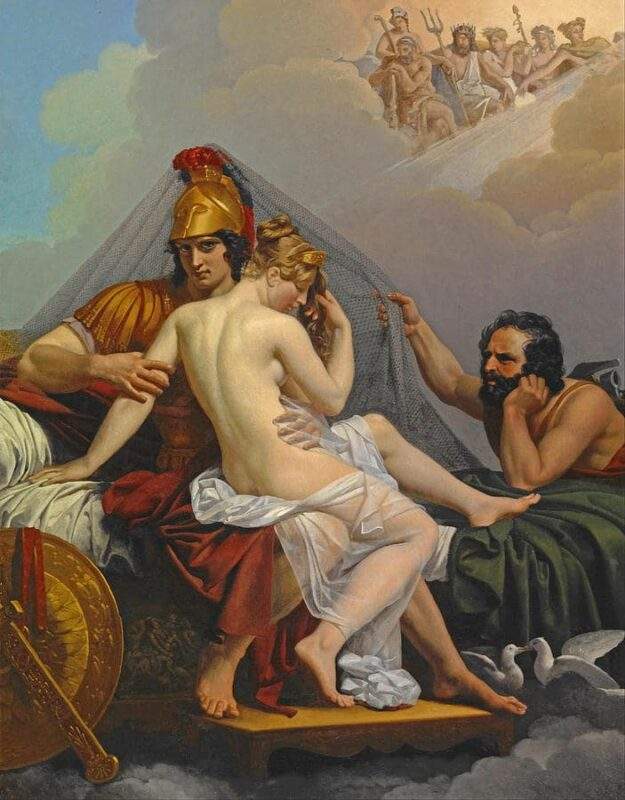
Aphrodite’s marriage contradicted her status as the Goddess of Love; she was in a loveless partnership. Whilst Hephaistos loved Aphrodite devotedly, Aphrodite had never and would never in Greek mythology return his affection.
Eventually, Hephaistos became increasingly enraged and bitter about Aphrodite’s indifference towards him as well as her affection for others. Hephaistos formulated a plan to shame Ares and Aphrodite in front of the other gods. When they were locked in an embrace in bed, Hephaistos sprung a golden net over them, and called upon the gods to come and witness their infidelity.
After this, it is implied in various accounts that Hephaistos divorced Aphrodite, as he is reported to have been married to Aglaia, one of the Charities. It is important to note that it had to be Hephaistos’ choice and not Aphrodite’s to instigate a divorce.
In Aphrodite’s mythology, she had rebelled against those who attempted to govern her love and passion, the very attributes she represented in her title as Goddess. She was passed through the patriarchal structure of society by the men who had the most control over her life. First, by Zeus, her father and the head of her household. Then, to the new household of Hephaistos.
Concerning the history of feminism, Aphrodite’s position reflects the many cases in which ancient Greek women were given in arranged marriages, passing from their father’s household to their husband’s. In most cases, the marriage was a transaction between two men, for their benefit. There was not much consideration for the woman’s opinion.
Aphrodite’s only available act of independence and resistance against this arrangement was to continue her relationship with Ares, who was her own choice of partner.
Athena Goddess Of War And Wisdom In The History Of Feminism
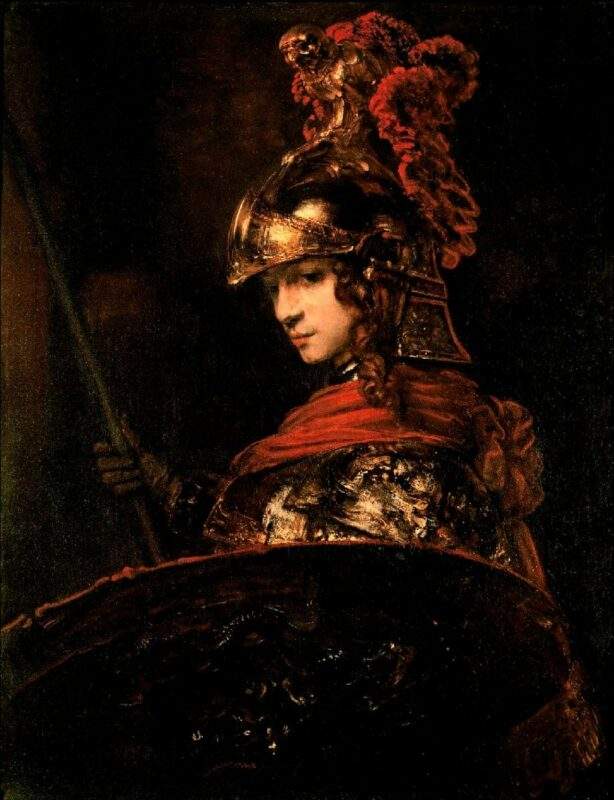
Athena’s story is of immense importance for everyone interested in understanding Greek Mythology within the greater context of the history of feminism. Athena had some independence and power when compared to her fellow Greek Goddesses, but nevertheless, she was still subject to her father. Many ancient sources imply that Athena was the favorite child of Zeus because Zeus allowed Athena to wear his own armor (called Aegis) into battle.
Athena’s myth begins as such: when Athena’s mother, Metis, the first Goddess of Wisdom, was pregnant with Athena, Metis told Zeus a prophecy that sent him into a spiral of worry.
As Zeus was the current king of gods and men, he feared being overthrown, so he swallowed Metis and his unborn child. Despite the odds, Athena was born as a fully grown woman from the head of Zeus, fully arrayed in armor.
Athena: Part II
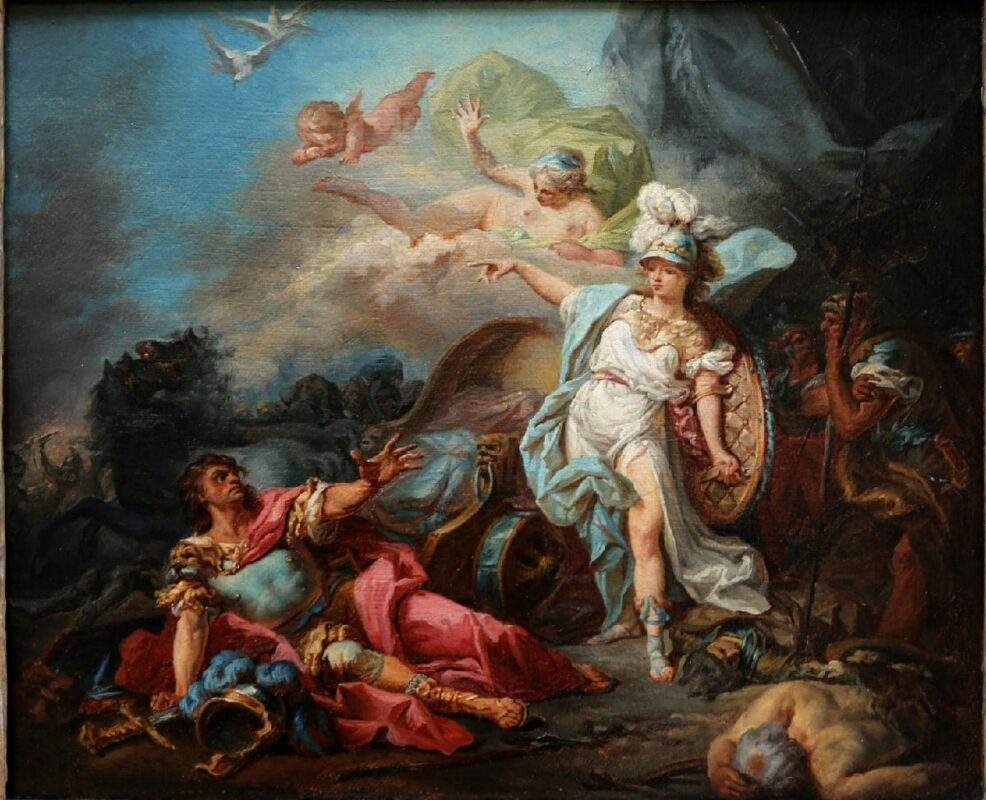
From the moment of her birth, Athena fulfilled the prophecy by being equal to her father in strength and wisdom. Rather than becoming a rival to Zeus, she became his valued advisor. But Athena did not exert her wisdom as superior to Zeus’, because this would make him see her as a threat, just as the prophecy implied. Thus, Athena held a high position of power, such that she became the ‘favorite’, and was allowed a degree of freedom, yet, she was still subject to her father.
In the Iliad, Ares, child of Zeus and brother to Athena, is injured by the mortal hero Diomedes, who was encouraged by Athena. Ares complained to Zeus that he let Athena get away with everything and showed his wound. To this, Zeus replied that Ares deserved his injury.
Whilst Zeus showed favoritism to Athena, she was not allowed to have complete freedom. She would always have to ask Zeus permission before she acted, for fear of punishment.
In the Trojan War, Athena greatly wanted to see Troy punished for their actions against the Greeks and the Greek gods, however, Zeus was giving support to both sides causing chaos on the battlefield. Athena had to join with Hera in order to convince Zeus to let the Greeks push back the Trojans.
In another myth, when both Athena and Poseidon wanted to be the patron of Athens, Zeus got involved with the decision, demanding that it be put to a vote.
Athena was still subject to Zeus’ command because she was his daughter in a patriarchal hierarchy, and she was beneath him in terms of status and power. Athena would spend an eternity deferring to her father.
Persephone Goddess Of Springtime And Fertility
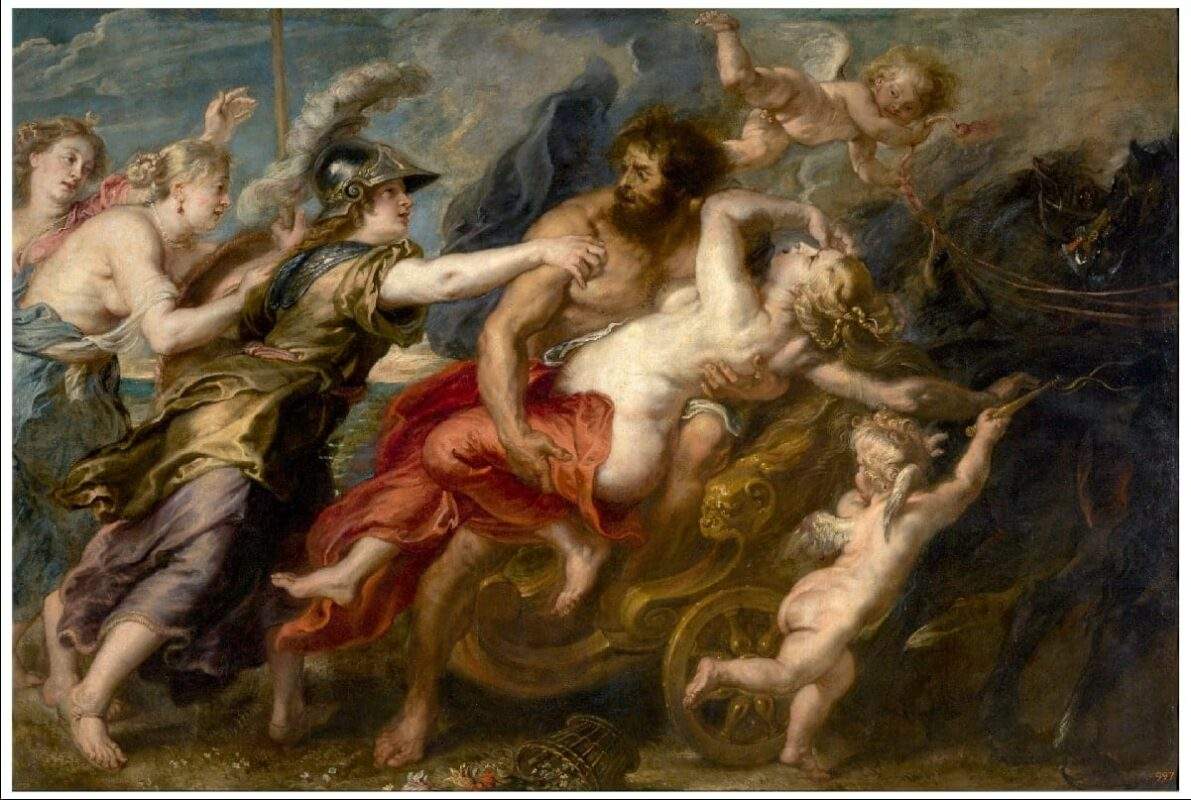
Persephone was the victim of a classic case of injustice within the history of feminism. Without her knowledge of the arrangement, Persephone had been given in marriage by her father, Zeus, to Hades. One day whilst Persephone was picking flowers in a meadow, Hades burst out of the ground and whisked her away to be his bride in the Underworld. Persephone had no knowledge of the arrangement and believed she was being kidnapped until Hades eventually explained the situation to her.
Persephone, goddess of springtime and fertility and now Queen of the Underworld was subject to living in a kingdom devoid of the brightness and life of the world above. Some sources say that Persephone was gifted a garden in the Underworld by Hades, a garden which was populated with blood-red poppies. This was a poor substitute for the variety and abundance of plant life that the living world could offer.
As a result of her marriage to Hades and her new role as Queen of the Underworld, Persephone became a dual goddess: of the spring, and of the dead. Therefore, her identity was split between her original interest, her fascination with springtime and fertility, and her mandatory role presiding over the dead with Hades. Her position and influence consequently appear very oxymoronic.
Hestia, Goddess Of The Hearth And Home
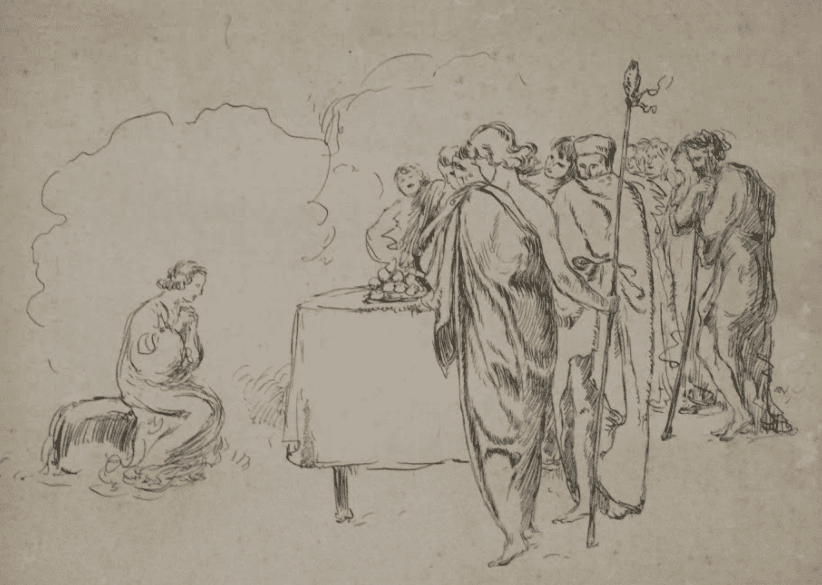
Hestia was the eldest immortal within a single generation of the gods. She was Zeus’ eldest sister and Kronos’ first child. As the first of the generation, she took the title of the Goddess of the Hearth and Home. In ancient Greek society, the hearth was a very important aspect of society, as life revolved around the community and the home. Hestia’s role tending the flame of the hearth represents the tending of the home and the community itself, both private and public.
In some mythological accounts, Hestia is regarded as one of the twelve Olympians. However, in many accounts, her place is taken by Dionysus. Since Dionysus was seen as a younger, newer god in the mythological chronology, it has been interpreted that Hestia gave up her seat for Dionysus. However, this appears to be a modern interpretation by Robert Graves, to account for the switching twelfth Olympian, because there is not a clear reason as to why Hestia was replaced by Dionysus in the ancient sources.
Hestia’s passive and quiet nature may be a reason for this interpretation, as Hestia in Greek mythology appears to be a reserved soul. She often does not take sides in the wars that her fellow gods take part in, but instead tends the eternal flame. The eternal flame was the hearth of Olympus, signifying the community and home of the Greek gods.
Nevertheless, despite Hestia being the central figure who represented the connectedness of the home and the community, she was effectively removed from the community of the Olympians, becoming a secondary and minor goddess.
Greek Goddesses: The History Of Feminism
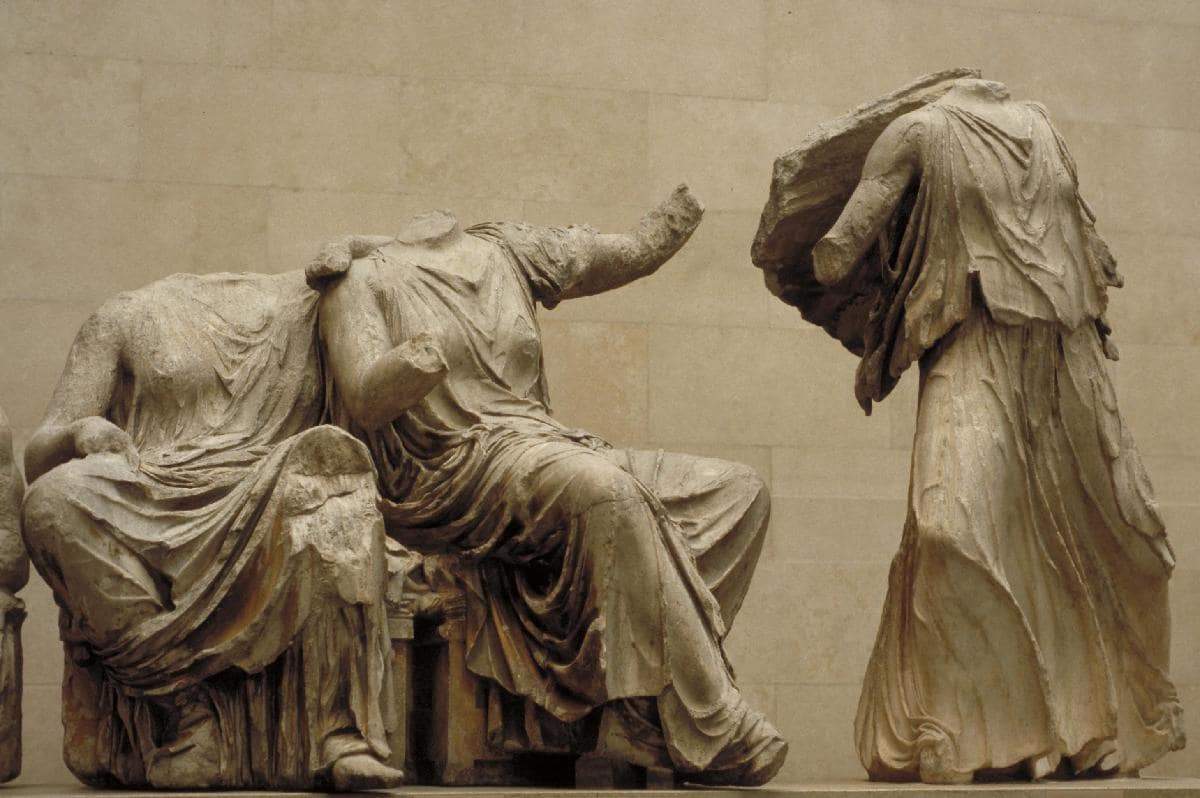
These examples show that even the Greek goddesses were subject to male oppression, which often meant the Greek Goddesses were unable to represent their godly powers.
In some cases, as with Persephone and Hera, their situations illustrate the opposite of their supposed ideal, i.e. instead of the perfect marriage, Hera’s myths feature adultery; instead of representing fertility, Persephone is often associated with the lifeless Underworld.
In Greek mythology, male oppression is best illustrated by the figure of Zeus, who has great control over the lives of others. His power and control symbolize the patriarchal structure of both divine and mortal society.
Even the virgin goddesses who were seen as untouchable were not; they often had to deal with unwanted advances. Their status as virgins was dependent on the power and protection of Zeus. Zeus himself was an ironic guardian of these goddesses’ virtues, as he showed little care for other women’s choice to remain celibate.
Zeus’ example indicates a society that was structured so that females were dependent on males, yet vulnerable to them at the same time.
Many of the Greek goddesses accepted their given roles within the society of the gods. However, the examples of rebellion indicate friction within the history of feminism. Hera’s attempt to overthrow Zeus, Aphrodite’s continual pursuit of Ares despite her marriage to Hephaistos, and Athena’s manipulation of Zeus through her wisdom, show how these goddesses fought against their restraints. The Greek Goddesses often held their own and exerted what freewill they could under the system they were subjected to.
